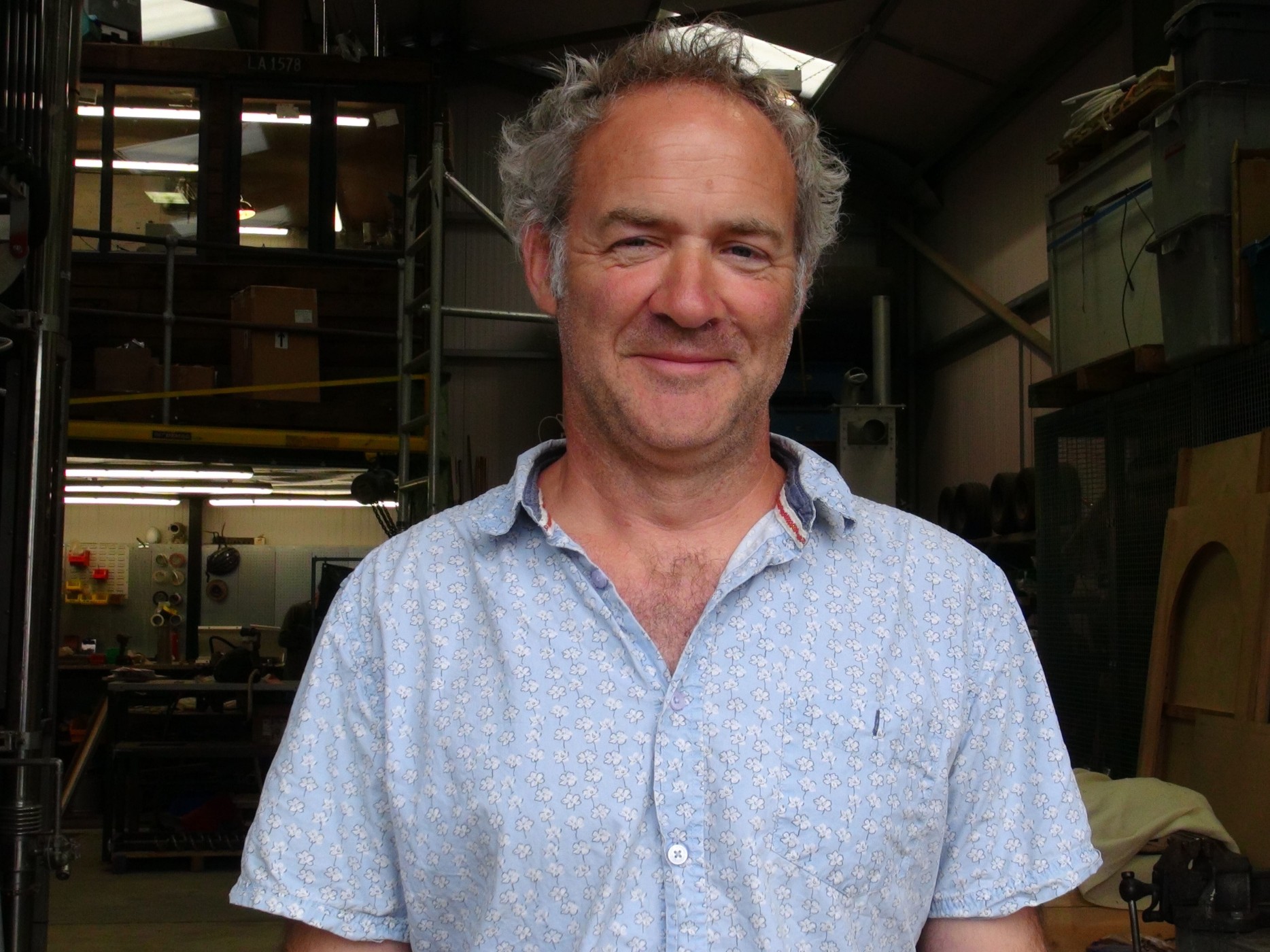Converting waste into a usable resource
Since graduating with a degree in engineering, 47-year-old Guy, from Wiltshire in the UK, has worked on a wide variety of research and development projects – from working with schools to educate children on composting and food waste reduction, to engineering innovative mobile units to help farmers reduce waste and process fruit juice in developing countries like Uganda and Nigeria. All his projects have something in common – finding practical solutions to problems that benefit the environment, agriculture, or communities, or all three. Based on the site of the business his grandfather started more than 60 years ago, his workshop near Malmesbury in the South West of England is a hive of activity. In his onsite office, you can hear intermittent power tool and hammering sounds as work continues in the main workshop. It was while managing development projects for the family business - Alvan Blanch Development Company - in 2014, that he developed a mobile fruit processing unit for Makerere University in Kampala, Uganda. The aim of the unit? To encourage business and marketing experience for post graduate students and to reduce post-harvest costs and food waste. “One of the projects I did for Alvan Blanch was a mobile fruit juicing project and that’s what kind of got me interested in the whole mobile thing,” says Guy. “The idea is that the truck is used to process fruit out in the field, saving the farmer from travelling into the local market and the fruit piling up and it all being wasted.” “There are different seasons for the fruits – like water-melons, guava and mangoes – and the truck can utilise those seasons, it can make the most of the time when the fruits are ripe and turn them into juice. It also means the waste by-products – the seeds, the stones and the skins – can all go back to the land and are not travelling lots of miles.” >Water is the key for mobile processing< But there are many challenges associated with producing mobile units, as Guy explains: “Water is really the key for this kind of mobile processing, so we had to add a water purification filtration system and on-board storage.” “The juice is obviously very sticky and you’ve got lots of flies around, so you need to be able to wash it all off at the end of a shift and clean it down and it needs to be safe. Because of the high ambient temperatures, bacteria will breed fast, so wash down water is imperative to the process to succeed.” “We also had to have a pasteuriser on board so that once you’ve separated the juice from the fruit you can ensure the juice is safe for longer term storage.” After developing the plans and building the system over 11 months for Makerere University at the Alvan Blanch factory, Guy spent three weeks in Uganda commissioning the project and the truck, supplied by the University, and training operators in how to use it effectively. In 2014, this project attracted a lot of attention, not only from the farmers and members of the public, but from a national Ugandan TV news station, which broadcast the project’s story. However, Guy is modest about the reaction to the broadcast. “It was quite fun and it did cause quite a stir when we arrived with people asking why are you here and why are you doing this, but I think the biggest reaction was at the end of a shift when we were handing out fresh pineapple juice!” >The challenges of decontaminating human and animal waste< It was while working on a sanitation project in Madagascar that Guy really became engaged with pasteurisation and the challenges associated with decontaminating human waste. The project helped reinforce the vital importance of water use and storage for these projects as well as the need to make sure the process is energy efficient. [...] To read the whole article and learn more about Guy’s motivation and hopes during his journey, up to his recent involvement in the European funded NOMAD project, visit the news section of www.projectnomad.eu



